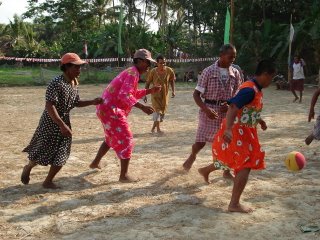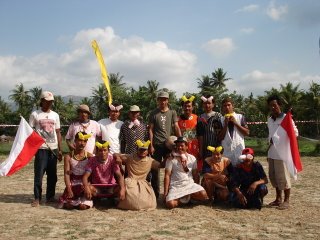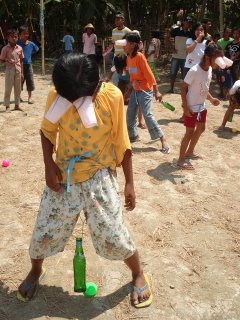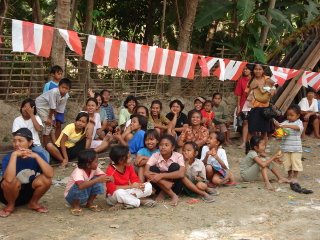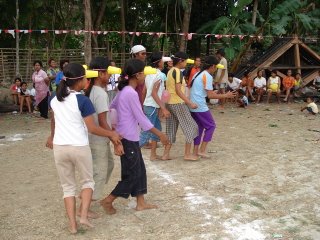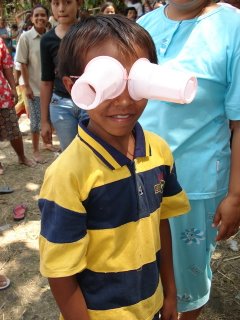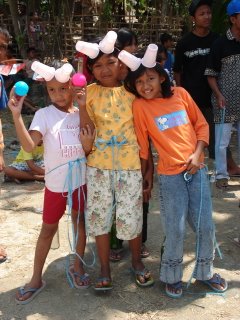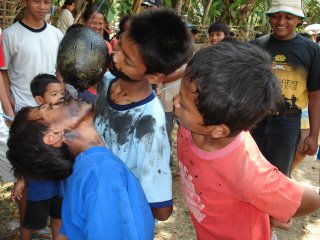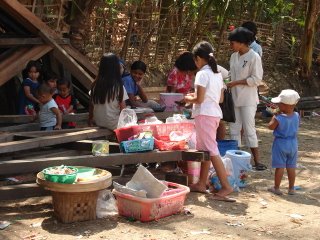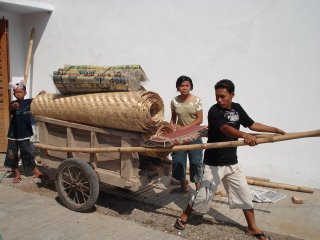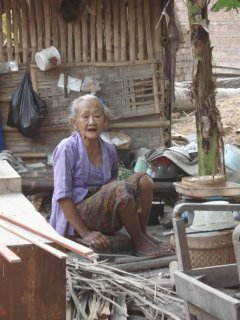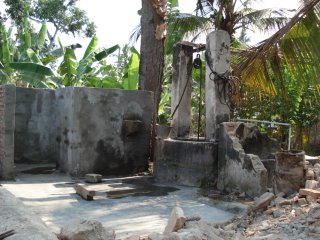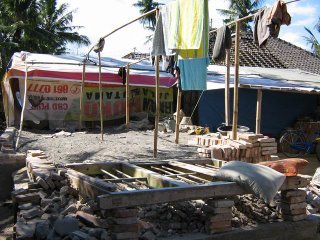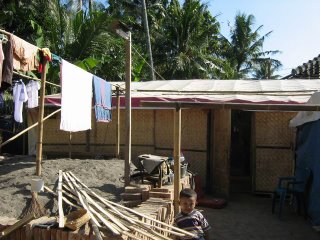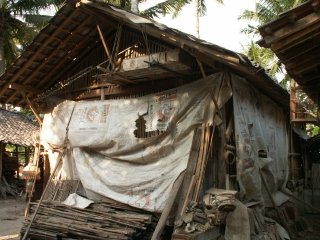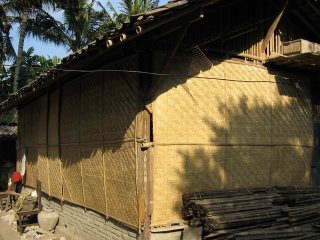I got to know Mbah Mitro well during the gedeg distribution phase of our reconstruction effort. As a local, he knew exactly what the earthquake had done to his community, and he was eager to contribute towards the reconstruction of his community. As we worked along side each other, we became good friends. I was impressed by his good nature, calm and methodical approach to everything he did. We laughed a lot.
Now that we are no longer in the emergency phase, I am spending a week in Sekarals and a week in the Klaten region. Upon my return to Klaten, I am told by Mbah Mitro's neighbours that while I was away, he was rushed to hospital because he was having trouble breathing and was complaining about a terrible pain in his chest.
They tell me that he was in hospital for a week, but was now home again. When he left for hospital, his house still had tarp for the walls and roof, so his children with the help of his neighbours decided that they would work hard to put the gedeg and tiles on his house so that when he returned it would be all done.
I went to visit him, and as I walked in the house, I was greeted with such sadness and sorrow on the faces of his kin, that I thought, "oh no, he has passed away!" I tentatively approached his bed and was elated to see him quietly resting. His breathing was laboured, but he was still with us. He’d lost a lot of weight, making his slight frame look even slighter. We chatted like old times, cracked a few jokes and laughed. He was tired; he had been kept awake all night with the sharp pain that every intake of breath brought.
His family told me that according to the doctors at the hospital, Mbah Mitro was suffering from severe stress and trauma from the earthquake. For such a capable, calm and friendly man, this is sad news indeed. There was nothing I could do but continue to offer my friendship and hope that he will be well again.
Before leaving, I was able to leave a small contribution to go towards paying for his medicines. Out in the front yard, I was greeted by his daughter “you have made my father laugh for the first time since he fell ill; it is a wonderful thing what you have done!” she said as she shook my hand.
A week later, upon my return to Klaten, I was told that Mbah Mitro had passed away. His neighbours tell me that the day after my visit, he became very ill again, and so his family had taken him back to hospital. He died the following day.
Mbah Mitro had one night in his new house with the new walls and roof. After more than five months under a tarp... just one night! .
So long Mbah Mitro. I am grateful that I had the opportunity to work closely with you. I hope that you are now in a peaceful place.
Below are photos of Mbah Mitro's family and his house. Unfortunately, I don't have any photos of Mbah Mitro himself.
Regards
Sari























 Here I am with the two Dutch volunteers Dan and Rachel, and Lek Mi, who is also from Sekaralas. Lek Mi works with SGN with my teacher Ms Sari.
Here I am with the two Dutch volunteers Dan and Rachel, and Lek Mi, who is also from Sekaralas. Lek Mi works with SGN with my teacher Ms Sari.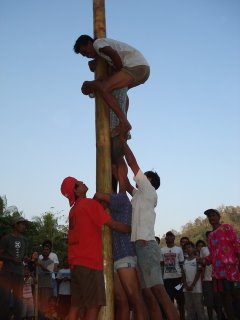
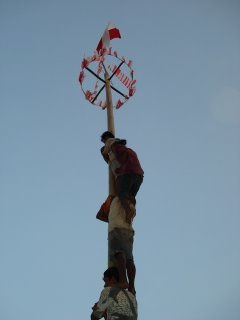
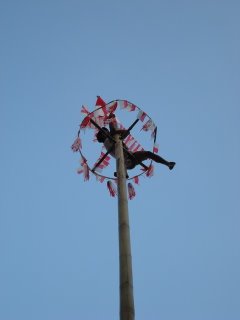 He did! He made it!
He did! He made it!